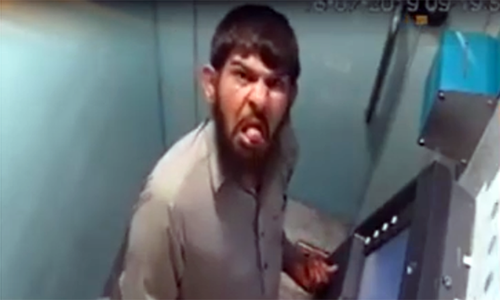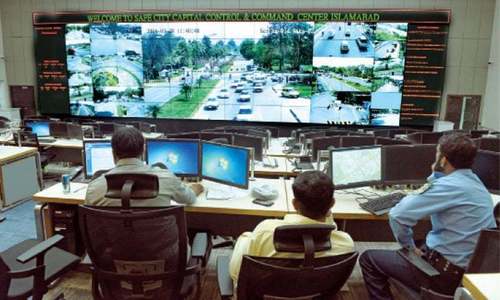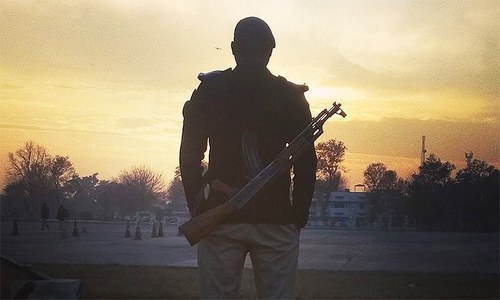ISLAMABAD: A series of leaks by law enforcement officials of images and videos of citizens and people in their custody have led to questions about the impact on privacy and the right to a fair trial, while the police have begun working to sensitise personnel against the practice, even dismissing some officials involved.
A number of videos have been leaked by law enforcement in the last few years. In 2017, during the investigation of the Panama leaks, a photograph of Hussain Nawaz, son of former prime minister Nawaz Sharif, sitting in a room in the Federal Judicial Academy was leaked.
Images taken from Safe City cameras have also been leaked in Islamabad and Lahore, in one case leading to a divorce.
In the capital, videos were circulated from a Customs raid on the go-down of a well-known pharmacy chain just last month. Earlier this year, the video of an inspection to check the use of plastic bags by a popular eatery in which authorities were allegedly manhandled, was shared widely.
In July this year, a video of Salahuddin, a disabled man who died in police custody, was leaked depicting him allegedly robbing an ATM in Faisalabad.
Under Article 10-A of the Constitution, everyone should get the right to a fair trial, Supreme Court advocate Risat Ali Azad said.
“The leaking of videos and pictures can also affect court decisions, as they build opinions on social media and can lead to a miscarriage of justice. Moreover, public servants, especially officials of law enforcement agencies, are bound to ensure the privacy of suspects,” he said.
There are various reasons and factors behind this kind of behaviour, psychologist Sara Zulqarnain said.
“We call it bio-psychosocial factor, which happens due to chemical changes and imbalance in the brain that changes people’s attitudes. It also happens due to somatic symptom disorder, which is characterised by an extreme focus on physical symptoms such as pain or fatigue, as police officials work under stress, get less sleep and even their appetites are not addressed timely,” she said.
“Such things bring mood swings, and people start doing things that can make them feel important or show that they have access to important things,” she added.
Deputy Inspector General of Police (Operations) Waqaruddin Syed attributed the problem to social media, which he said was new to the Pakistani public.
“Everyone is on social media and they forward material without looking into its authenticity. In the incident of Salahuddin, videos were not only made viral by police officials but the video from the ATM was also leaked, which shows that the same problem and mindset is everywhere.
In the past, images from the Safe City cameras were leaked due to which a couple ended up getting divorced,” he said.
In 2014-15, police officials in Islamabad copied videos and used them to blackmail individuals, Mr Syed said.
“Strict action was taken and not only were the officials involved dismissed from service but it was ensured that no one would be authorised to copy videos or photos without permission from a director general-level officer,” he said, adding that officials in Lahore were also dismissed from service for leaking Safe City images.
Workshops are being held with support from UN organisations and NGOs to sensitise officials, he added.
The widespread circulation of private footage of citizens recorded by Safe City cameras has exposed a serious shortcoming in the legal framework, the absence of a data protection law, former senator and human rights activist Farhatullah Babar said. He said this needs to be addressed urgently.
“A data protection law should have been enacted simultaneously, if not before, the anti-cybercrime law. Today we have the anti-cybercrime law but no data protection law, and authorities can play havoc with the private data of citizens with total impunity,” he said, adding: “That is why we will have scandals like that of the Safe City cameras.”
Published in Dawn, December 9th, 2019















































